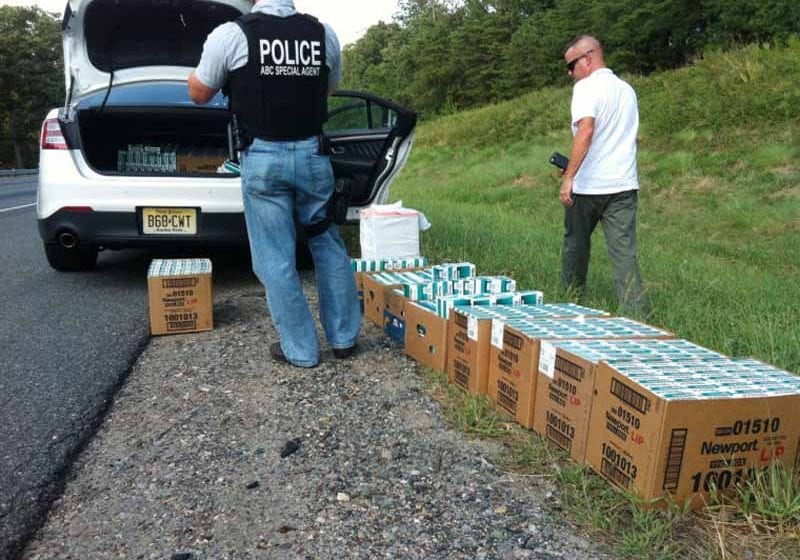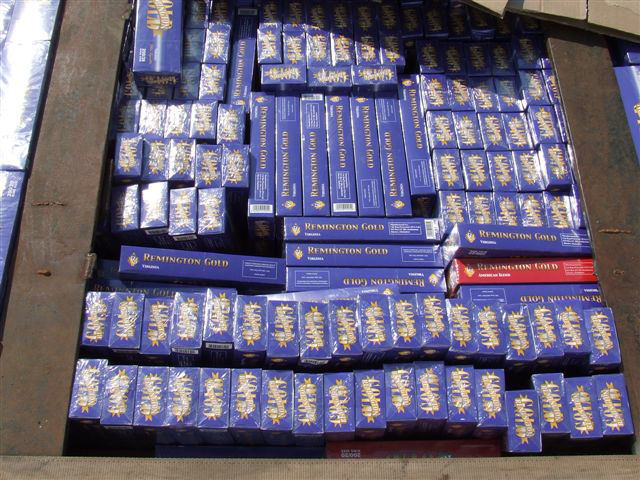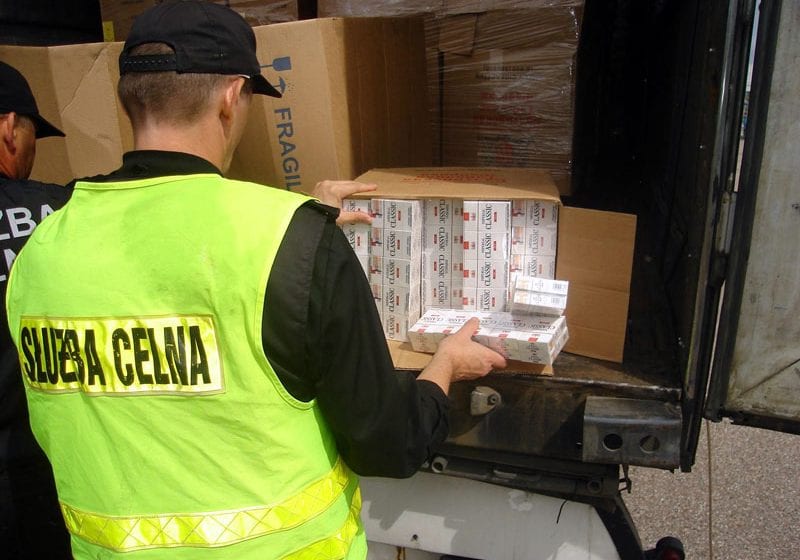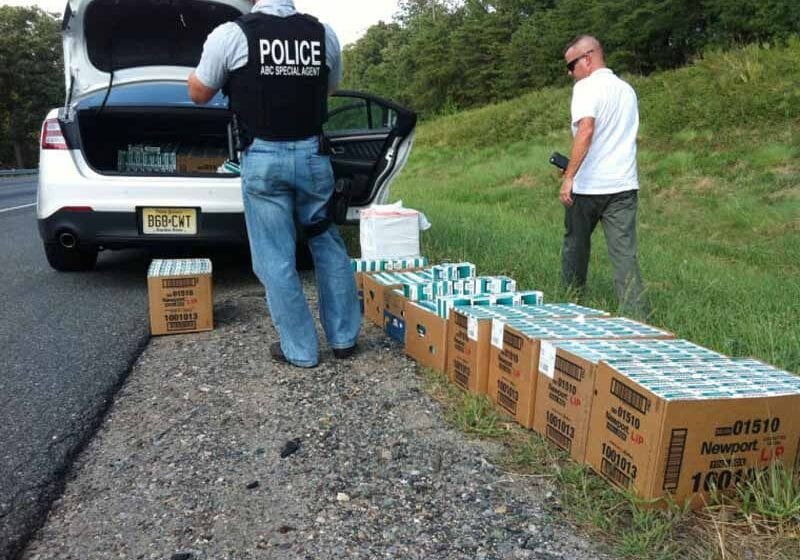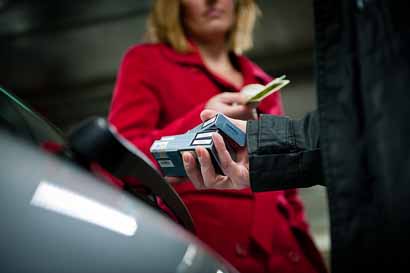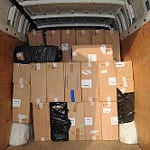Claims by the tobacco industry of a positive association between price/tax changes in respect of tobacco products and the illegal trade in those products are unsubstantiated, according to an article by Guillermo Paraje, PhD for Nicotine and Tobacco Research, published by Oxford University Press.
An abstract of the piece, Illicit Cigarette Trade in Five South American Countries: A Gap Analysis for Argentina, Brazil, Chile, Colombia and Peru, concludes that using simple statistical methods, ‘it is possible to assess the trend in tobacco illicit trend over time to better inform policy-makers’. ‘Getting reliable and regular population consumption surveys can also help to track tobacco illicit trade,’ the conclusion states. ‘Claims by tobacco industry of a positive association between price/tax changes and illicit trade are unsubstantiated.’
Under the heading Implications, the abstract says, in part, that the evolution of ‘cigarette illicit trade in five Latin American countries show different trajectories, not in line with tobacco industry estimates, which highlight the importance of producing solid, independent estimates’.
‘There are inexpensive methodologies that can provide estimates of the evolution of the relative importance of illicit trade and can be used to inform policy-makers.’
Category: Illicit Trade

Tax link questioned

Bill ropes in vaping
In South Africa, a proposed new tobacco-products bill would extend the government’s regulatory reach to cover vaping, according to a story in The Business Day.
The Health Minister Aaron Motsoaledi on Wednesday published what the newspaper described as ‘the long-awaited’ Control of Tobacco Products and Electronic Delivery Systems Bill. The Bill, which was passed by the Cabinet last month, is subject to a three-month public-comment period.
The Bill is said to pave the way for much stricter tobacco laws than previously applied and for bringing e-cigarettes into the regulatory fold.
In the preamble to the bill, the minister said strong action was required to deter people from using tobacco products, to protect non-smokers from exposure to tobacco smoke and to encourage existing users to quit.
Electronic delivery devices were to be regulated because they contained nicotine and the long-term effects of their use was unknown, he said.
Key proposals in the bill include a ban on vending machines, the introduction of standardized packaging and graphic health warnings, much tighter control on smoking in public places, and regulation of electronic delivery devices.
The Tobacco, Alcohol and Gambling Advisory Advocacy and Action Group’s executive director Peter Ucko said the bill was long overdue.
“This bill should have been published in 2010 or 2011,” he said. “Many people have died because it wasn’t.”
Ucko said the language of the bill needed to be tightened up to close loopholes that would enable the industry to undermine the government’s efforts.
But the Tobacco Institute of Southern Africa’s chairman Francois van der Merwe said the bill went too far. It would render SA a “counterfeiter’s paradise” and increase the sale of illicit cigarettes.
“There is no urgency for this bill,” Van der Merwe said. “It is a cut-and-paste job from Geneva, instead of developing regulation that can work [in SA].”
Auctions to boost exports
Vietnam is due to start auctioning quality smuggled foreign cigarettes on a trial basis starting on June 18, according to a Xinhua News Agency story.
The Ministry of Industry and Trade reportedly said yesterday that, under a prime ministerial decision, the cigarettes would be sold for export, but only to countries that did not border Vietnam.
Revenues earned from the auctions are to be used to help combat cigarette smuggling.
According to the Vietnam Tobacco Association, nearly one billion packs of smuggled cigarettes are smoked in Vietnam each year, causing ‘losses’ of about US$450 million to the state’s budget.
A recent survey by the country’s Health Ministry showed that Vietnam has 15.6 million smokers aged over 15, 85.3 percent of whom smoke daily.
They spend about 31 trillion Vietnamese dong (nearly US$1.4 billion) on their habit annually.
Illegal trade rising
A ‘significant percentage of Australian smokers’ are consuming illicit cigarettes, according to a Xinhua News Agency story based on a report published yesterday.
The KPMG study showed that while tobacco consumption fell by 6.1 percent between 2016 and 2017, the share of illicit tobacco rose to 15 percent – to 1,248 tons.
In 2009, the story said, illicit tobacco accounted for nine percent of overall consumption.
The consumption of illicit cigarettes was said to be ‘costing’ the federal government up to A$2 billion (US$1.49 billion) in ‘lost’ tax revenue.
But Australia’s excise on cigarettes is expected to raise A$15.6 billion by 2021, up from A$11.2 billion in 2017-18 as excise increases come into effect.
The excise on tobacco was raised by 25 percent in 2010 with eight further 12.5 percent increases legislated to take place between 2013 and 2020. It is currently equivalent to 75 percent of the price of a pack of cigarettes.
Illicit cigarettes are about 40 percent cheaper than are licit cigarettes, while loose-leaf tobacco is 70-80 percent cheaper.
Illegal trade alarming
At least a quarter of South Africa’s cigarette trade is illegal, resulting in significant ‘losses’ to the treasury, according to a story in The Business Day quoting the chairman of the Tobacco Institute of Southern Africa, Francois van der Merwe.
Van der Merwe was one of a number of people who appeared before Parliament’s standing committee on finance, which is looking into the illegal tobacco trade.
Also present were representatives of Treasury, the South African Revenue Service, the Financial Intelligence Center, the National Prosecuting Authority (NPA) and the Hawks (the Directorate for Priority Crime Investigation).
Van der Merwe referred to estimates that the treasury had ‘lost’ more than R27 billion in unpaid taxes on tobacco products between 2010 and 2016.
“One of the consequences of tax manipulation by certain players is that the legal, tax-compliant tobacco sector is losing market share to the illegal sector at an alarming rate,” he was quoted as saying. “At least a quarter of the cigarette market in South Africa is illicit with certain channels selling 50 percent to 100 percent illicit product.”
The illegal trade not only affected manufacturers but threatened the sustainability of tobacco farmers, said Van der Merwe, who added that the legitimate tobacco sector contributed R23 billion to GDP, paid about R22 billion in tax and supported 108,475 jobs.
NPA acting special director of public prosecutions Marlini Govender referred to estimates that South Africa ranked among the top five countries in the world with the highest incidence of trade in illicit cigarettes, noting that the profit margin on the illegal trade was very high.
Govender said the illegal trade was a trans-national problem involving neighboring countries and required effective collaboration in the region to prevent consignments crossing South Africa’s borders. The porous nature of South Africa’s borders and the element of corruption that allowed consignments to pass were factors that acted as enablers.
Govender added that collaboration with the private sector and within the criminal justice sector was required.
Meaty enterprise
A retail butcher who was caught stocking and selling more than 13,000 counterfeit cigarettes at his shop in Greenock, Scotland, was raided three times in two months, according to an exclusive story by David Goodwin for the Greenock Telegraph.
The 71-year-old Adam Johnstone-Smith was said to have hidden part of his cigarette stock in a vat of sausage spice mix in a possible bid to throw sniffer dogs off the scent.
Johnstone-Smith – who had 13,360 counterfeit cigarettes seized – said he’d resorted to the illegal side-line because his business was in “dire straits”.
But a sheriff said that Johnstone-Smith “must have made significant money” from dealing in the inferior-quality tobacco.
HM Revenue and Customs and Trading Standards teams visited the shop on June 16 last year and confiscated 8,400 cigarettes and 1.7 kg of hand-rolling tobacco.
The shop was searched again on July 7 and 4,300 cigarettes were seized.
A third visit with dogs on August 17 yielded yet more cigarettes and packs of hand-rolling tobacco concealed within a plastic bin containing the spice mix.
Johnstone-Smith pleaded guilty to being knowingly concerned in carrying, harbouring, concealing or in any other manner dealing goods which were chargeable with duty and did this with intent to ‘defraud Her Majesty’ of £4,548.
The court heard that he had paid the duty prior to his sentencing hearing.
Smith was ordered to complete 150 hours of unpaid work within six months as an alternative to prison.
An HMRC spokesman was quoted as saying that the sale of illicit tobacco would not be tolerated.
“Disrupting criminal trade is at the heart of our strategy to clampdown on the illicit tobacco market, which costs the UK around £2.5 billion a year,” he said.
“This is stealing from the taxpayer and undermines legitimate traders.”
The full story is at: http://www.greenocktelegraph.co.uk/news/16161444.Butcher_caught_in_fake_cigarettes_raid_hid_goods_in_sausage_mix/
Smuggling proliferating
Cigarette smuggling is on the rise in the Philippines partly due to tax-driven higher retail prices, according to a story in The Philippine Daily Inquirer.
Internal Revenue Commissioner Caesar R. Dulay said yesterday that the country was suffering a “proliferation of smuggling”.
He said the situation had been brought to the attention of the Bureau of Internal Revenue (BIR) by Philip Morris and Japan Tobacco, which had investigated the trade. And the BIR had responded by putting in place a task force charged with addressing the situation.
Although he did not provide figures on the volume of illicit cigarettes entering the country, the BIR chief said it was substantial, “because the tobacco companies were complaining”.
Dulay said it was likely that most of the smuggled cigarettes came from neighboring Asian countries.
“We also have feedback that there are some manufacturers in the provinces producing fake cigarettes; in fact, the NBI [National Bureau of Investigation] and the police have conducted some raids,” Dulay said, citing manufacturing units recently uncovered in Bulacan and Nueva Ecija.
Dulay admitted that smuggling had become rampant after the government raised the excise tax under the Tax Reform for Acceleration and Inclusion (TRAIN) Act. Under the TRAIN Law, cigarette taxes rose to P32.50 per pack effective January 1, from P30.00 a pack last year, and are due to be increased in stages to P40.00 per pack by the end of 2023.
Dulay said that a pack of licit cigarettes retailed at P60-65 per pack, while non-tax-paid products sold for half that price. Given this, it was likely that smokers would buy the illicit cigarettes.
Anti-tobacco groups closing
Two award-winning non-profit groups that have led the fight against tobacco in Canada are preparing to close their doors after the money they had expected to receive as part of the most recent federal budget failed to materialize, according to a story by Gloria Galloway for the Globe and Mail.
Galloway reported that the Non-Smokers’ Rights Association (NSRA) and Physicians for a Smoke-Free Canada (PSC) had been limping along on a combination of savings, provincial help, and the work of volunteers since their federal funding was cut by the former Conservative government in 2012.
Health experts and organizations across Canada had expected that the Liberal government’s promise to renew the federal Tobacco Control Strategy, which expired on March 31, would include support for the two organizations.
Instead, the government has said the $11-million that was committed to the strategy this year and the $16-million promised for next year will be used to stop the influx of contraband tobacco and to pay for unspecified ‘targeted actions’ to help Canadians quit smoking.
The full story is at: https://www.theglobeandmail.com/politics/article-two-leading-canadian-anti-tobacco-groups-to-shut-down-after-ottawa/
Tax relief not justified
A recent study has indicated that sales of illicit cigarettes account for under nine percent of Pakistan’s market, according to a story in the Express Tribune.
The results of the Study to Assess the Volume of Illicit Cigarette Brands in Pakistan was launched on Wednesday by the Pakistan National Heart Association and the Human Development Foundation.
They indicate that tobacco-industry claims that illicit cigarettes account for more than 40 percent of the market are wrong.
The results are said to indicate also that the third tier of taxation introduced by the Federal Bureau of Revenue (FBR) to give relief to tobacco companies was not justified.
The FBR initiative is said to have caused a loss of billions of rupees to the government exchequer and to have increased tobacco consumption considerably, increasing the nation’s health burden.
The study was carried out recently under the technical guidance of the Knowledge Hub on the Economics of Tobacco Control Project, which is part of the World Health Organization’s Framework Convention on Tobacco Control (FCTC).
It assessed volume sales of illicit cigarettes in 10 cities and their adjoining rural areas across Pakistan.
Data from Karachi, Lahore, Sukkur, Multan, Hyderabad, Peshawar, Quetta, Rawalpindi, Muzaffarabad and Nowshera, were said not to have supported tobacco-industry claims.
The study said there was no justification for the tax break provided by the third tier.
All tax relief should be removed and taxes on tobacco should be increased, the study recommended.
The full story is at: https://tribune.com.pk/story/1677803/1-research-says-illegal-cigarette-sales-less-9/.
Still waiting for Godot
The EU Commission said last week that the fight against the illegal tobacco trade is a ‘cross-border phenomenon that requires a global approach and international co-operation’.
In answer to a number of questions by a member of the EU Parliament, it said also that the measures enshrined in the Protocol to Eliminate Illicit Trade in Tobacco Products, introduced through the World Health Organization’s Framework Convention on Tobacco Control (FCTC), which the EU had signed and concluded, aimed to address this problem.
‘Once entered into force, the FCTC Protocol will be the main tool to prevent illicit tobacco trade at the international level,’ it said.
In a preamble to her questions, posed in December, the Lithuanian MEP, Laima Liucija Andrikienė, said the government of Belarus had recently announced that a private investor would increase the manufacturing capabilities of the Grodno Tobacco factory.
According to the announcement, the increase in production was due to start in January 2018, in response to a growing demand for Belarusian cigarette brands.
The EU was among the target markets.
The MEP alleged that Belarusian cigarette brands manufactured at the Grodno factory were smuggled into more than 20 member states where they could not be legally sold.
They already represented around EUR1 billion in yearly tax losses.
Andrikienė asked:- Will the European External Action Service (EEAS) address this issue with the government of Belarus?
- Will the EEAS request information about the member state markets on which Belarusian cigarette brands can legally be sold and how the exports will be tracked to avoid ruptures in the supply chain?
- Will the EEAS point out that low taxes applied in Belarus on cigarettes are the incentive for smuggling into the EU?
In its reply, the Commission said that during the meeting of the EU-Belarus Co-ordination Group held in Brussels on December 19 and 20, the Commission services and the EEAS had raised the issue of the increased inflow of illicit cigarettes from Belarus to the EU and the decision by the Belarusian government to increase the production of cigarettes.
‘The Commission services and the EEAS have further invited Belarus to enhance the fight against illicit trade in tobacco products, strengthen the co-operation with the Commission and in particular with the European Anti-Fraud Office, sign and ratify the Protocol to Eliminate Illicit Trade in Tobacco Products to the World Health Organization’s Framework Convention on Tobacco Control (“FCTC Protocol”) and approximate its excise duty rates to the EU excise duty rates on manufactured tobacco,’ it said. ‘This issue will be followed up in bilateral dialogues with Belarus and in the EU-Belarus Co-ordination Group, which is the platform for political dialogue between the EU and Belarus.
‘In close co-operation with member states’ customs authorities, the Commission services monitor the illicit trade of tobacco products in the EU, including with respect to tobacco products originating in Belarus.
‘However, the fight against illicit tobacco trade is a cross-border phenomenon that requires a global approach and international co-operation.
‘The measures enshrined in the FCTC Protocol, which the EU signed and concluded, aim to address this problem.
‘Once entered into force, the FCTC Protocol will be the main tool to prevent illicit tobacco trade at the international level.’

